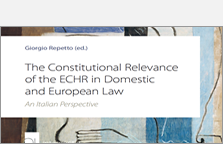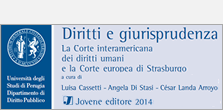SARTARELLI S. – Pena detentiva e diffamazione a mezzo stampa: si resta in attesa
Autore dell’articolo/Author
Stefania Sartarelli
Abstract
L’ordinanza della Corte Costituzionale – Le brevi osservazioni che seguono derivano dalla constatazione di un nuovo “modo di fare” della nostra Corte Costituzionale che ha deciso, nuovamente, di avvalersi della tecnica dell’incostituzionalità differita, e lo ha fatto, nuovamente, in relazione ad una tematica di diritto penale. Infatti, sulla base di quanto già accaduto per il caso Cappato (in tema di aiuto al suicido), la Corte costituzionale, con l’ordinanza n. 132/2020 (nell’udienza del 9 giugno), depositata il 26 giugno 2020, ha concesso un anno di tempo al Parlamento per modificare la normativa penalistica che disciplina il reato di diffamazione a mezzo stampa, al fine di renderla conforme alla Convenzione europea dei diritti dell’uomo e, di fatto, alla giurisprudenza della Corte di Strasburgo.[…]
By the ordinance n. 132/2020, the Constitutional Court has operated with the mechanism of deferred unconstitutionality, granting a time period to the Parliament to re-evaluate the delicate balance between the protection of reputation and the press freedom, in the line with the case law of the Court of Strasbourg. In this short text, will be examined mainly the italian sanction treatment for the crime of defamation in the press in relation to the criteria of Article 10 of the ECHR.[…]













